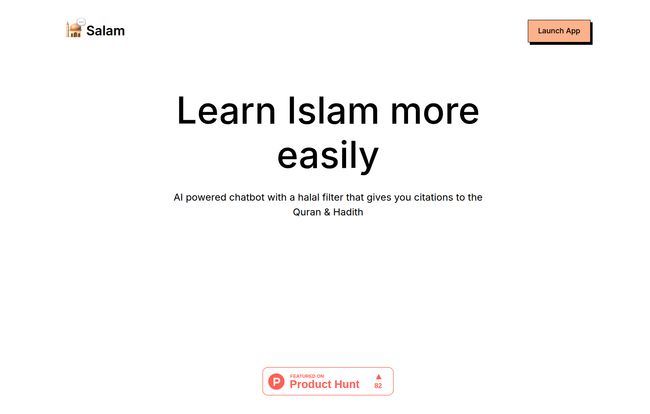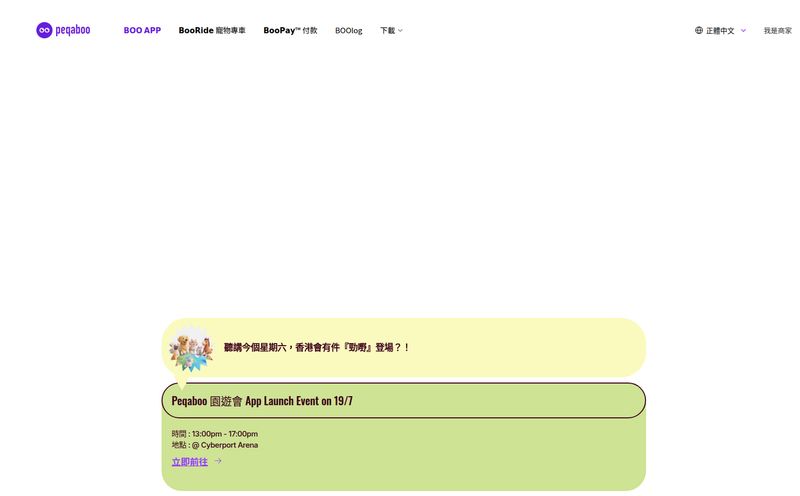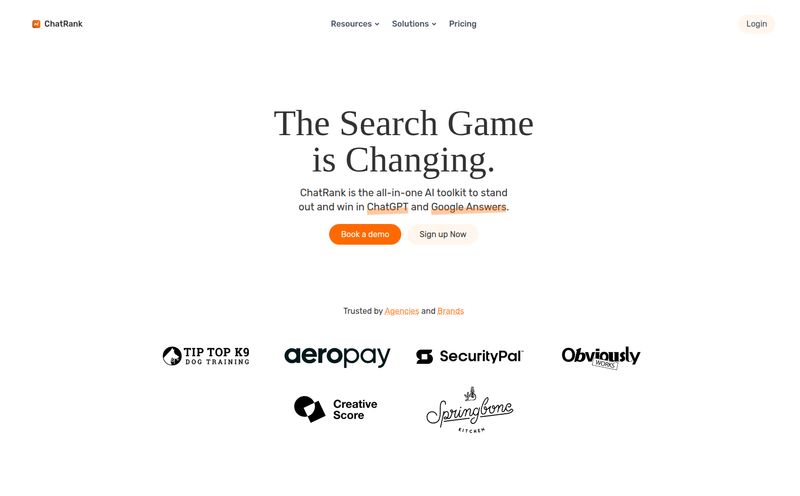I’ve spent more hours than I care to admit wrestling with AI chatbots. As an SEO, they're part of my daily toolkit. I use them for brainstorming, for coding snippets, for turning my jumbled thoughts into something vaguely coherent before my morning coffee kicks in. But there's a line, right? I'd ask it for a recipe for sourdough, sure. But would I ask it about the meaning of life? Or about the nuances of a centuries-old religious text? Probably not.
The problem with most big-name AIs, your ChatGPTs and your Geminis, is that they’re trained on… well, everything. The glorious, messy, and often flat-out wrong expanse of the internet. For casual queries, that’s fine. But for matters of faith, tradition, and sacred scripture, you need more than just a confident-sounding answer. You need accuracy. You need sources. You need reverence. And honestly, that's where I've seen them fall apart.
So when I stumbled upon a project called Salam Chat, my curiosity was piqued. It's not trying to be everything to everyone. Instead, it has a very specific, very important mission: to be an AI-powered chatbot to help Muslims learn about Islam more easily. This isn't just a gimmick; it’s a direct response to a real need.
What Exactly is Salam Chat?
At its core, Salam Chat is an AI assistant focused entirely on Islamic knowledge. Think of it less like a sprawling, chaotic public library and more like a dedicated study room with a knowledgeable, patient guide. Its goal is to provide answers to your questions about Islam, but with a few critical features that set it apart from any generic AI you’ve used before.
The landing page itself is simple and direct: "Learn Islam more easily." It’s not promising to revolutionize the world; it’s promising to help with a personal, and often complex, pursuit of knowledge. And it seems to have struck a chord, having already been featured on Product Hunt.

Visit Salam Chat
The Features That Make Salam Chat Stand Out
Let's get into the nitty-gritty, because this is where things get interesting from a tech and a user perspective. It's not just about what it does, but how it does it.
Citations That Build Trust
Anyone who's used AI has seen it happen. You ask a question, and it spits out an answer that sounds plausible but is completely fabricated. In AI circles, we call these "hallucinations." It’s annoying when it gets a historical date wrong; it's deeply problematic when it misrepresents a verse from the Quran. Salam Chat's killer feature, in my opinion, is its commitment to providing citations to the Quran and Hadith for its answers. This is a game-changer. It transforms the tool from a black-box answer machine into a genuine research assistant. You don't just have to take its word for it; you can see the source, the context, and study it for yourself. This is the bedrock of all serious study, religious or otherwise.
The "Halal Filter": Safe Browsing for Your Soul
The internet can be a minefield. The creators of Salam Chat clearly understand this. The inclusion of a "halal filter" is a thoughtful and necessary touch. While the specifics aren't detailed, one can infer its purpose: to ensure the conversation remains appropriate, respectful, and free from the haram (forbidden) or toxic content that plagues open platforms. This also directly addresses one of the FAQ's on their site: "Is this safe for kids?". By creating this walled garden of information, it becomes a much safer space for learners of all ages to explore their faith without stumbling into something they shouldn't.
Trained by Scholars, Not Just Scraped from the Web
This might be the most important point of all. Garbage in, garbage out. An AI is only as good as the data it's trained on. Salam Chat isn't just running a generic model with a few Islamic keywords thrown in. The platform makes a point of stating its model is trained by Islamic scholars. This means the foundational knowledge base is curated, verified, and structured by people who have dedicated their lives to studying the faith. It’s the difference between learning from a professor and learning from a random person shouting in the town square. It lends an immediate layer of authority and credibility that a generic AI simply cannot match.
A People-Powered, Open-Source Approach
Here’s something else that caught my eye. Salam Chat is volunteer-driven and open-source. In a world dominated by billion-dollar AI companies with closed, proprietary models, this is a breath of fresh air. It suggests the project is driven by community and mission, not just profit margins. In fact, one of the FAQs bluntly asks, "How do you make money?" and the current reality seems to be... they don't. This isn't a slick, venture-backed product (at least, not yet). It feels more like a passion project built by and for the community it serves. That authenticity is something you can't buy.
A Realistic Look: The Potential and The Patience
Okay, let's be real. The platform is still very much in its early stages. If you rush over to the site right now, you’ll likely find a waitlist for early adopters. It’s not a finished product, and features are still on the roadmap. But I dont see this as a negative. It's just the reality of building something meaningful from the ground up. The strengths are obvious: scholar-verified information, crucial source citations, and a safety filter. These are not small things; they are the very foundation of what makes this tool so promising.
The waitlist and the "under development" status are simply hurdles that come with being an early supporter of a new idea. And what about pricing? For now, there is none. The volunteer-driven nature means its focused on building a great tool first, which I respect. That could change in the future as server costs and development needs grow, but the grassroots feel is a huge part of its current identity.
Who Is This Tool Really For?
I see a few groups of people getting really excited about Salam Chat. First, students of Islam, whether they're new converts or lifelong Muslims, who want a quick way to look up concepts and find the relevant scriptural basis. Second, parents. What a relief to have a tool you can point your children to for their questions, knowing it has a safety net built in. And finally, just about any Muslim who has ever typed a question into Google and been overwhelmed by the mix of scholarly articles, forum debates, and questionable blog posts. This tool offers a path through that noise.
My Final Thoughts as an SEO and Tech Watcher
For years, the trend in tech was to build massive, all-encompassing platforms. But I believe the future is niche. The future is specialized. A general AI will never be able to serve the specific needs of a community as well as a tool built from the ground up for that community. Salam Chat is a perfect example of this. It’s not trying to compete with ChatGPT on a global scale. It’s creating something far more valuable for a specific audience.
It’s a project to watch. It represents a move toward more mindful, purposeful, and trustworthy technology. And in today's world, we could all use a bit more of that.
Frequently Asked Questions about Salam Chat
Here are some quick answers to the common questions people have.
How do I know the information is correct?
The tool's strength lies in its two-part verification: the AI model is trained on data curated by Islamic scholars, and its answers provide direct citations to the Quran and Hadith, allowing you to check the primary sources yourself.
Is it safe for kids?
It's designed to be. The built-in "halal filter" aims to keep the content safe and appropriate, making it a much more controlled environment for young learners than a standard search engine or a generic AI.
How does it make money?
Currently, it doesn’t. Salam Chat is an open-source project run by volunteers. The focus is on its mission, not on monetization at this stage.
What new features are planned?
The platform is still in active development. While a public roadmap isn't available, we can expect future updates to focus on expanding the knowledge base, improving the AI's accuracy and conversational abilities, and enhancing the overall user experience.
How does the waitlist work?
Like many new tech products, the waitlist allows the team to onboard users gradually. This helps them manage server load, gather valuable feedback from early adopters, and fix bugs before a wider public launch.
In Closing
Salam Chat is more than just another AI tool; it's a thoughtful application of technology to serve a deeply personal need. By prioritizing accuracy, source citation, and safety, it's building a foundation of trust that is so often missing in the digital world. It’s a young project with a long road ahead, but its mission is clear and its approach is sound. I'm genuinely excited to see how it grows and helps people in their journey of learning.
Reference and Sources
- Salam Chat Official Website: salamchat.co
- Salam Chat on Product Hunt: producthunt.com/products/salam-chat



